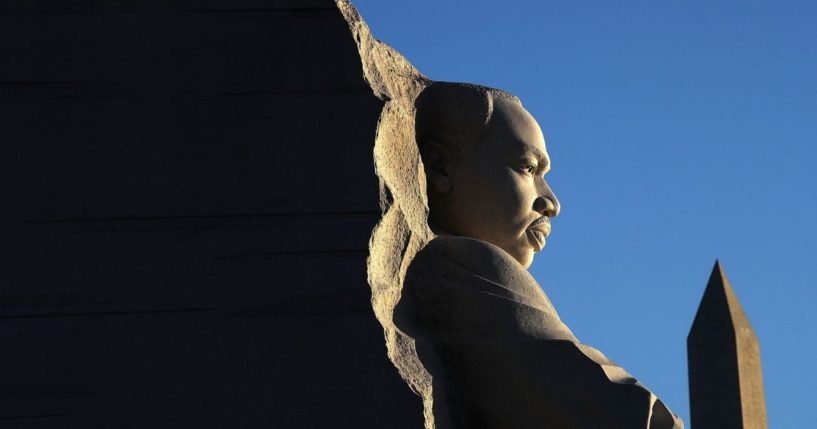
Parker: MLK's 'I Have a Dream' Speech Has the Very Message America Needs to Hear Right Now
We celebrate Dr. Martin Luther King Jr. on the third Monday of January — this year, Jan. 17.
On Aug. 28, 1963, King delivered one of the great speeches in American history, popularly known as the “I Have a Dream” speech.
It is a speech that must be dusted off and studied anew today because it contains the very message that our nation sorely needs to hear and digest, a message that has been tragically lost and buried and replaced with great and destructive distortions.
Two things jump out when reading through the “I Have a Dream” speech.
One is how this black preacher captured in his words that day the heart and soul of America. Second, how King’s great message stands in total contrast to the rhetoric peddled by today’s progressives as the remedy to our racial strife.
The indictment of the woke movement is that America is the problem. King offered up America as the solution. He talked about the “magnificent words of the Constitution and the Declaration of Independence.”
“I have a dream that one day this nation will rise up and live out the true meaning of its creed: ‘We hold these truths to be self-evident, that all men are created equal.'”
The problem, as King explained, is not America or the eternal truths that were brought to bear in its founding. The problem was the failure of the nation to live up to the challenges of its great founding principles.
This was the heart of King’s message that day. He appealed to America to realize the dream of its Founding Fathers, not to crush and bury it, as we hear today.
The problem is not white people. “The marvelous new militancy … must not lead us to a distrust of all white people,” King said.
And, of course, the most memorable and oft-quoted line of the speech: “I have a dream that my four little children will one day live in a nation where they will not be judged by the color of their skin but by the content of their character.”
What has happened instead? In the name of “racial justice,” Americans today are defined by the color of their skin, not the content of character.
King’s speech is divided into three parts.
Part one is the appeal to the nation to live up to its great founding principles.
Part two is an appeal to black Americans to rise up and act accordingly in the noble pursuit of liberty and justice. Let’s not drink from the “cup of bitterness.”
Part three is an appeal to the ideals of the Christian soul of the nation.
King quoted the prophet Isaiah that “the crooked places will be made straight … and the glory of the Lord shall be revealed, and all flesh shall see it together.”
Biblical truths and ideals have been sadly lost to wokeism, which has for all practical purposes become a religion in itself.
Let’s honor King now as we enter 2022 by revisiting and taking to heart the great truths he spoke on that summer day in Washington, D.C., 1963, great truths that have very sadly been cast to the side and replaced with the religion of politics and power.
Let’s honor King by seeing America as he presented it then, as embodying the ideals of a free nation under God.
Only then can we join hands and sing, as King dreamed, “the words of the old Negro spiritual: Free at last! Free at last! Thank God Almighty, we are free at last.”
© 2022 CREATORS.COM
The views expressed in this opinion article are those of their author and are not necessarily either shared or endorsed by the owners of this website. If you are interested in contributing an Op-Ed to The Western Journal, you can learn about our submission guidelines and process here.
Truth and Accuracy
We are committed to truth and accuracy in all of our journalism. Read our editorial standards.
Advertise with The Western Journal and reach millions of highly engaged readers, while supporting our work. Advertise Today.












